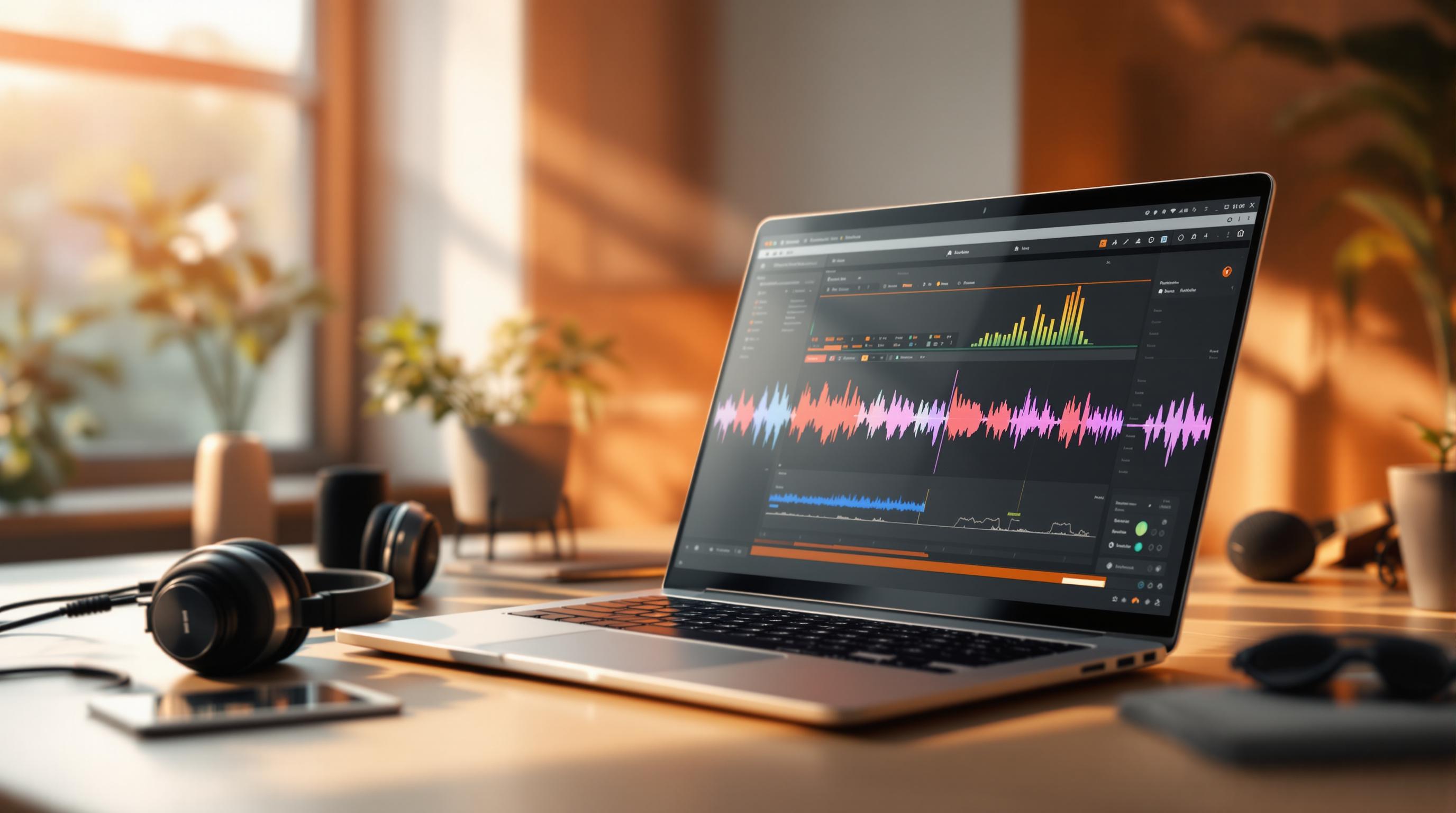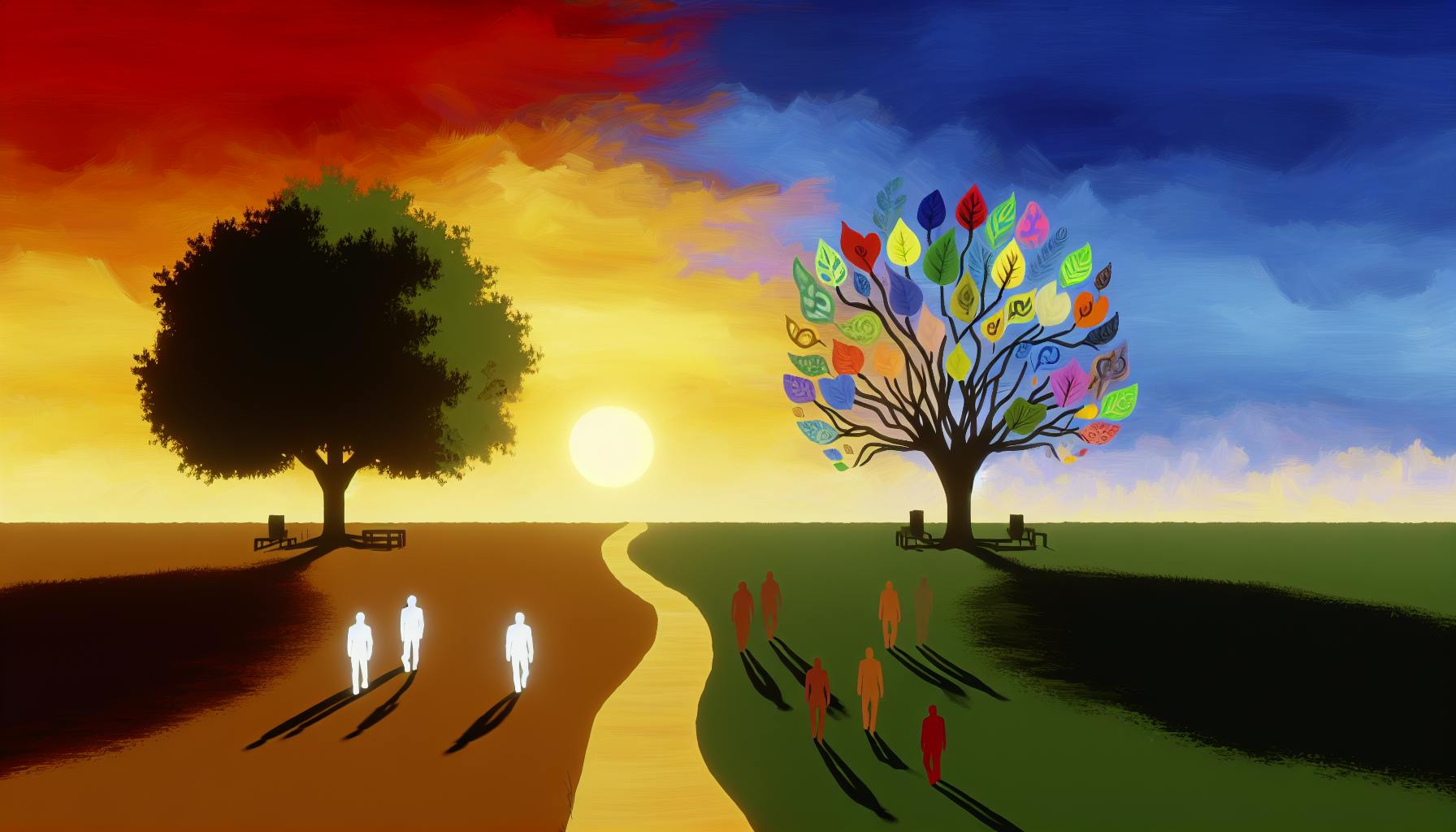Feeling anxious due to social media? You're not alone. Here's a quick rundown of why this happens and how you can manage it:
- The Comparison Trap: Seeing the best parts of others' lives makes ours seem dull in comparison, causing anxiety.
- FOMO (Fear of Missing Out): Witnessing others' experiences can lead to a fear of missing out, adding to our stress.
- 24/7 Connectivity: The pressure to always be online and responsive is overwhelming.
- Impact on Teenagers: Teens are particularly vulnerable due to their need for peer validation, risk of relational aggression, and being at a critical developmental stage.
How to Cope
- Set Social Media Rules: Limit your time and take breaks.
- Be Selective About Who You Follow: Unfollow accounts that make you feel bad.
- Engage in Real-Life Activities: Spend less time online and more with friends in person.
Remember, understanding and adjusting your social media habits can significantly reduce anxiety.
The Comparison Trap
Social media can make us feel like we're not doing as well as others. When we see all the perfect moments from someone else's life, like amazing vacations or fancy new things they bought, it's easy to feel like our own lives don't stack up. This can make us feel bad about ourselves and anxious.
Some things that often make us compare ourselves to others on social media include:
- Perfect holiday pictures that make our own lives seem less exciting
- Photos of people with new gadgets or homes that we can't afford
- Images of models or influencers showing beauty standards that seem impossible to meet
- Posts about big achievements, like getting a new job or starting a relationship, that we haven't experienced yet
Social media shows us a very polished version of life that isn't the whole truth. It makes us compare our real, everyday lives to these ideal moments, leading to feelings of anxiety.
FOMO and the Fear of Missing Out
Seeing what others are doing on social media can also make us feel like we're missing out. This fear of missing out, or FOMO, happens when we see friends having fun without us or going on trips we can't afford. It can make us anxious and worried that we're not living our best lives.
Some common FOMO triggers from social media include:
- Notifications about parties or events we weren't invited to
- Posts about friend gatherings we didn't know about
- Updates from people on vacations we can't go on
- Seeing others reach goals or milestones that we haven't yet
This fear of being left out makes us constantly compare our lives to others, adding to our anxiety.
The Burden of 24/7 Connectivity
Finally, social media expects us to always be connected. This pressure to always be online and quickly respond to messages can be really stressful.
Some ways social media keeps us constantly connected include:
- Feeling stressed about replying quickly to a bunch of messages
- Worrying about being away from our phones and missing out
- Checking notifications late at night or first thing in the morning
- Feeling like we have to stay logged in all the time so we don't miss anything
Being glued to our screens all the time can be exhausting and make us anxious. It's hard to relax when we feel like we have to always be available.
The Outsized Impact On Teenagers
Teenagers are really feeling the pressure from social media, and here's why:
Heightened Sensitivity to Peer Validation
- During the teenage years, fitting in and what friends think is super important.
- Getting likes, comments, and more followers can make a teen feel good or bad about themselves.
- There's a lot of stress to look cool and popular online.
Increased Risk for Relational Aggression
- Social media can make it easier for mean behavior like leaving someone out, spreading rumors, or bullying to happen.
- Online bullying and being mean anonymously are big issues for teens.
- This can be even tougher for young girls who often face more of this indirect mean behavior.
Critical Developmental Stage
- Being a teenager is already a rollercoaster of feelings and making quick decisions.
- Teens aren't yet great at controlling how much time they spend online.
- Social media keeps showing them things that can make them feel judged or left out, which is really hard during these years.
Knowing about these pressures, parents can step in and help their teens learn how to handle social media better. This can make them less likely to feel anxious.
sbb-itb-bc761f5
How to Deal With Stress From Social Media
We all know that social media can make us feel anxious. But, there are ways to make it less stressful and more enjoyable.
Make Rules for How You Use Social Media
- Try to take breaks from social media. Start with just 30 minutes and then maybe try for longer.
- Set limits for how long you spend on social media each day. You can use special settings on your phone to help you.
- If you find yourself just scrolling without thinking, try to do something else you like instead, like reading or going for a walk.
- Turn off notifications that you don't really need. This way, you decide when to check your apps, not the other way around.
Choose Who You Follow Carefully
- Every now and then, look at who you're following. If someone's posts make you feel bad, it might be time to stop following them.
- Find groups or pages that talk about stuff you're interested in. It's a good way to meet people who like the same things you do.
- If a friend's posts always make you feel like you're missing out or not good enough, it's okay to mute or unfollow them. You can still be friends without seeing every single thing they post.
Make Real-Life Friends, Too
- Try to hang out with your friends in real life, not just online. Do things together like going to a movie or starting a hobby.
- Find a hobby that doesn't involve screens. This can help you spend less time on social media.
- Helping out in your community is a great way to meet new people and feel good about yourself.
Remember, social media can be fun, but it's important to find a balance. By setting some rules for yourself and spending time with friends outside of the internet, you can avoid feeling too anxious.
Related Questions
Is there a link between anxiety and social media?
Yes, research shows that using social media a lot can make people feel more anxious. A study from 2021 found that young adults who used social media a lot and felt they needed it were more likely to feel anxious and sad. Being always connected and comparing yourself to others on social media can be bad for your mental health.
What is the 3 3 3 rule for anxiety?
The 3-3-3 rule is a simple way to help calm yourself when you're feeling anxious. Look around and name:
- 3 things you can see
- 3 sounds you can hear
- 3 things you're touching right now
This helps your brain focus on the present and can help stop the anxious feelings.
How do I stop feeling on the edge?
If you're feeling anxious or on edge, try these tips:
- Practice deep breathing or meditation
- Get some exercise
- Listen to calm music
- Watch something funny
- Read a book
- Take a warm bath
Doing things that keep your mind busy can help you feel less anxious.
What triggers high functioning anxiety?
High functioning anxiety can be triggered by things like:
- Deadlines at work or school
- Worries about money or health
- Being in social settings
- Traveling
- Big changes in life
- Drinking too much caffeine
- Not getting enough sleep or exercise
Even good things happening, like getting a promotion, can make someone with high functioning anxiety feel stressed. It often comes from a fear of the unknown or not being in control.



